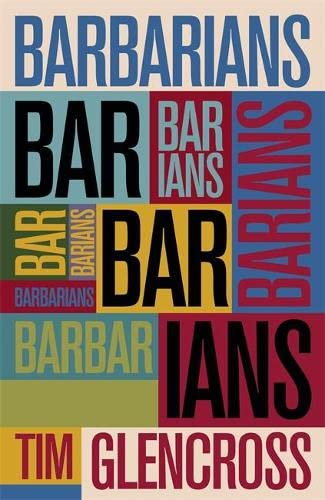I wrote this review of Barbarians by Tim Glencross in 2021 seven years after its publication. This is a novel which was met with acclaim at the time. Several literary awards shortlisted it for Best First Novel. I read it as an opportunity to see how the political landscape has changed and how well Barbarians has reflected this. I discovered that this is an everyday story of Islington folk and their privileged lives. Everyone has gone to Oxbridge and potters about looking to make their way in the world either in politics or in the law.

Skilfully written (in parts)
But it’s heavy going. The author has considerable skills in establishing place and character. This fine until I became weary of having to battle with lengthy sentences with their many subordinate clauses. This meant that I had to stop reading and decode the sentence to understand what is being said.
It does give a detailed insight into the parallel world of the politicos and their lawyerly friends. It features a big cast of characters: Bussy, Afua, Henry, Sherard, Marcel and Daphne. These characters are convincing although none of them seem to have any goal in life apart from ‘getting on’ in a freewheeling manner.
There’s little pressure on any of them to succeed. This is partly because we don’t know what they want to succeed at apart from broad aspirations of getting a job, and/or a spouse. And because we don’t know what they want, it’s difficult to care about them on their journey towards it.
Missed opportunity
There’s a huge, missed opportunity here. The character of Afua – born into challenging circumstances, adopted and given a leg-up in life – really interested me and I wanted to know a lot more about her.
Most of the book consists of vignettes collaged together. Things tick over in quite an interesting way. This is fine if you’re hungry for insights into the Islington way of life. But events of note rarely happen. I can see that the author set to write out a satire on these characters. However, it’s too subtly done to give any satisfaction.
The time periods which the book is set in are 2008 and 2011. I wondered why the contrast between these 2 periods wasn’t stronger. However, it was apparent how distant the politics of those times seem today in the early 2020s with the impact of Brexit and Boris Johnson. These 2 factors seem make the comings-and-goings in Islington seem trivial and self-indulgent.
Metropolitan elite versus the left behind regions?
In its own way, this book becomes an illustration of the issues behind Brexit: a self-interested metropolitan elite v a left-behind regional populace. Appropriately the only MP for who we know the constituency is Alec Merton, the member for Great Grimsby. But we learn nothing of this town. The only local incident happens when Merton visits the Cleethorpes Working Men’s Club. However, Cleethorpes is a neighbouring constituency). And so, the book unwittingly summarises the issues behind Brexit – an elite who know nothing of the regions they serve (or write about).
The novel does start to gather pace in the last 100 pages when the main characters begin to move towards goals. The book becomes much better to read. On finishing it, I wondered why the author didn’t decide to write an excellent novella or short first novel of, say, 200 pages instead of this longwinded account. It might have then won the awards it was short listed for.
